In today’s digital age, having a strong online presence is a must for any business, including hotels. Effective Search Engine Optimization (SEO) is crucial for hotels to attract guests and increase bookings since travelers often use search engines like Google to find accommodation. In this article, we will show you how to take advantage of SEO for hotels to enhance your website’s online visibility, drive organic traffic, and increase your hotel’s revenue. But first, let’s start with the basics.
What is SEO for Hotels?
SEO for hotel industry is the key to boosting your online presence and attracting potential guests. When people search for hotels online, they primarily click on the top results that appear on the first page of search engines like Google. In fact, the first result on Google receives a whopping 31.7% of all clicks. If your hotel website isn’t visible on the first page, you risk losing direct bookings and revenue to competitors or online travel agencies (OTAs) who prioritize SEO.

By optimizing your website to rank higher in search results, you can ensure that more travelers discover your hotel and choose to book directly through your website. So, if you want to secure more bookings and revenue, investing in SEO for your hotel is a must.
Chapter 1: The Importance of SEO for Hotels
Securing a strong SEO ranking is the key to elevating your visibility in search results, driving higher-quality traffic, and ultimately boosting your direct bookings. If you want to kickstart your hotel’s SEO journey, we’ve compiled a list of straightforward tips to guide you.
1.The Online Travel Landscape
In today’s digital age, travelers rely on internet and online platforms when it comes to planning their trips. Gone are the days when people rummage through a directory book in hopes of finding a hotel. Search engines like Google have become essential for finding the best hotels and accommodations. If your hotel doesn’t rank well in search results, you might miss out on potential guests. Understanding this digital landscape is a vital key in building a robust hotel SEO campaign.
2. Credibility and Trust
High search engine rankings indicate credibility and attract more guests. Travelers often click on the top results they see. If your hotel isn’t there, it might go unnoticed. SEO for hotel website is essential for ensuring your hotel appears among the first choices when people search for accommodations.
3. Cost-Effective Marketing
Compared to paid advertising, SEO can be a cost-effective marketing strategy. Once your website ranks well, organic traffic can be a consistent source of bookings without the ongoing ad spend.
Chapter 2: A Roadmap to Effective Hotel Website SEO
In the competitive hotel industry, a strong online presence is essential. On-page SEO is a key factor in this. In this chapter, we’ll explore on-page SEO for hotels, covering strategies that can improve search rankings and user experience. From keywords to user-friendly URLs, we’ve got you covered.
1. Define Your Target Audience
Defining your target audience is a fundamental step in crafting a successful SEO strategy for hotels. It entails delving into the minds of potential travelers and gaining insights into their preferences, interests, and needs. By thoroughly understanding the audience you aim to attract, you can tailor your content and keywords to align with their expectations. Are they seeking family-friendly accommodations, romantic getaways, adventure trips, or business stays? Knowing these details allows you to create content and optimize your website in a way that resonates with your ideal guests, ensuring that your SEO efforts are finely tuned to capture the attention of those most likely to book a stay at your hotel.
2. Keyword Research
To boost your hotel’s online presence, focus on keyword research for on-page SEO. Use tools like Google Keyword Planner and SEMrush to find the best keywords for your hotel. Consider your target audience (business travelers, tourists, families) and their preferences when selecting keywords. Local SEO is crucial for hotels, so include location-based keywords like “luxury hotel in Singapore.” Analyze your competitors’ websites to see which keywords are driving traffic in your niche. You can also try using location and attraction-specific keywords since there will be less competition and way easier to rank for. Below are samples for keywords that might highlight your hotel’s USP.
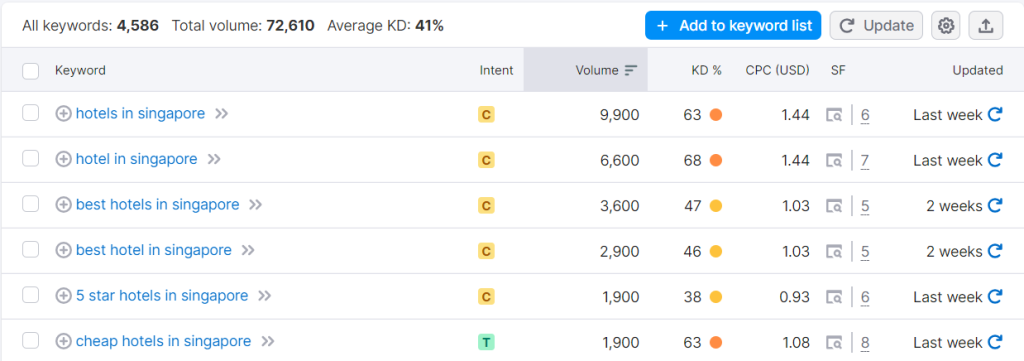
3. Optimized Website Content
To enhance your website’s search engine visibility, integrate your chosen keywords seamlessly into your content. This applies to landing pages, room descriptions, and blog posts. Remember, prioritize a natural approach. Avoid keyword stuffing and instead, focus on delivering informative, engaging, and genuinely useful content for potential guests. To optimize your content effectively:
- Create enticing meta titles and descriptions with relevant keywords for better search results visibility.
- Showcase your main keywords on your homepage and crucial landing pages.
- When describing rooms, emphasize their unique features and amenities while naturally incorporating keywords.
- Ensure content readability and a user-friendly experience alongside keyword usage, as well as optimizing your image alt text.
By following these steps, you not only boost your hotel’s SEO but also provide a valuable resource for travelers seeking accommodation.
4. Mobile Optimization
In a world where people spend more time browsing on their smartphones than their computer, having a mobile-friendly website is a must! Travelers use their smartphones and tablets for trip planning, so ensure your site is mobile-responsive. Here’s how:
- Invest in responsive web design that adapts to various screen sizes and orientations for a smooth mobile experience.
- Optimize your content for mobile: shorter paragraphs, larger fonts, and quick-loading, high-resolution images.
- Simplify mobile navigation with an easy-to-access menu and user-friendly buttons and links.
Mobile optimization not only meets user expectations but also boosts your chances of ranking well in mobile search results.
5. Page Speed
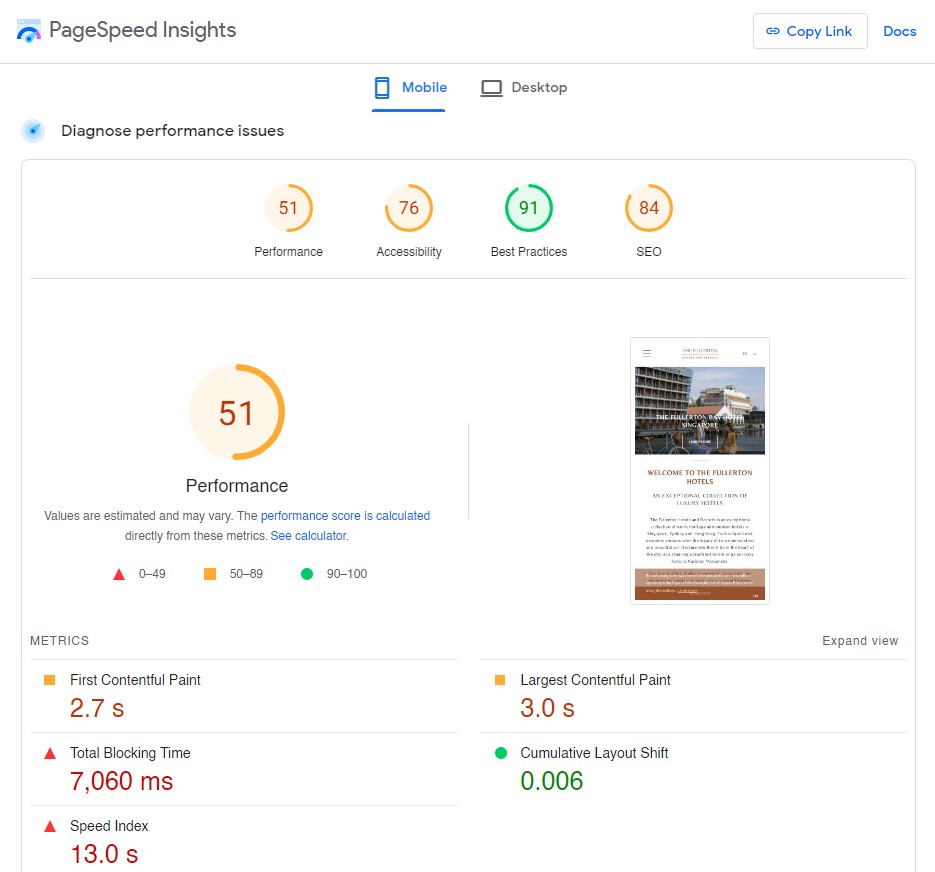
Page speed is super important for on-page SEO. Fast pages make users happy and improve your search engine rankings. Slow sites drive users away. Here’s how to speed up your site:
- Optimize Images: Make images smaller without losing quality. Use tools that do this automatically.
- Use Browser Caching: Let returning visitors load some data from their own computer, not your server, to speed up your site for them.
- Use a Content Delivery Network (CDN): Spread your site’s content across many servers in different places. This makes your site load faster for users in different locations.
- Reduce HTTP Requests: Every element on your page (like images and scripts) asks the server for data. Use fewer requests by combining files and writing efficient code.
- Speed Up Server Response: Choose a good hosting provider and ensure your server responds quickly. Slow servers slow down your site.
You can test your page speed with tools like Google’s PageSpeed Insights as shown above, GTmetrix, and Pingdom. They not only find issues but also offer tips to make your site faster.
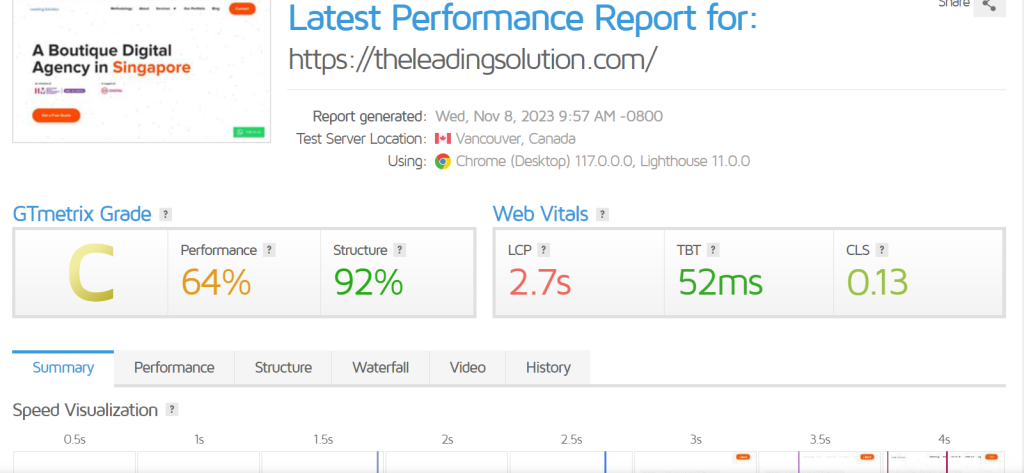
6. Schema Markup
Schema markup is a potent but underutilized tool in on-page SEO for hotels. It can improve your search results by adding useful information like room prices, ratings, and amenities, making your listing more attractive and informative to users.
7. User-Friendly URLs
Create clear, descriptive, and user-friendly URLs for your website pages. This not only improves SEO but also helps visitors understand the content of the page before clicking on it.
Chapter 3: Off-Page SEO Strategies
Off-page SEO might refer to any action done outside of your website to improve its visibility and reputation.
1. Link Building
Earning quality backlinks from trusted websites is key to improving your SEO. Partner with local businesses and work with travel bloggers by offering them complimentary stays or experiences in exchange for honest reviews on their platforms. You can also consider guest-posting on lifestyle websites. These efforts can help boost your website’s authority and visibility.
2. Online Reviews
Online reviews are crucial for your hotel’s image and SEO. Positive reviews make you look good, while negative ones can hurt your business. Ask guests to review you on sites like TripAdvisor, Google My Business, and Yelp. Be quick to respond to both good and bad feedback. Show appreciation for positive reviews and address problems in negative ones, proving your dedication to guests’ happiness and boosting your reputation.
3. Social Media Presence
A robust social media presence is crucial for improving your hotel’s off-page SEO. Although it doesn’t directly affect search rankings, it indirectly supports SEO by boosting engagement. Here’s how:
- Choose the right platforms (e.g., Facebook, Instagram, Twitter, LinkedIn) that align with your audience.
- Post high-quality visuals showcasing your hotel’s strengths and maintain up-to-date profiles.
- Engage with your audience by responding to comments, initiating discussions, and partnering with travel influencers.
- Use a reputation management system to efficiently monitor and address reviews from different platforms.
4. Local SEO For Hotels
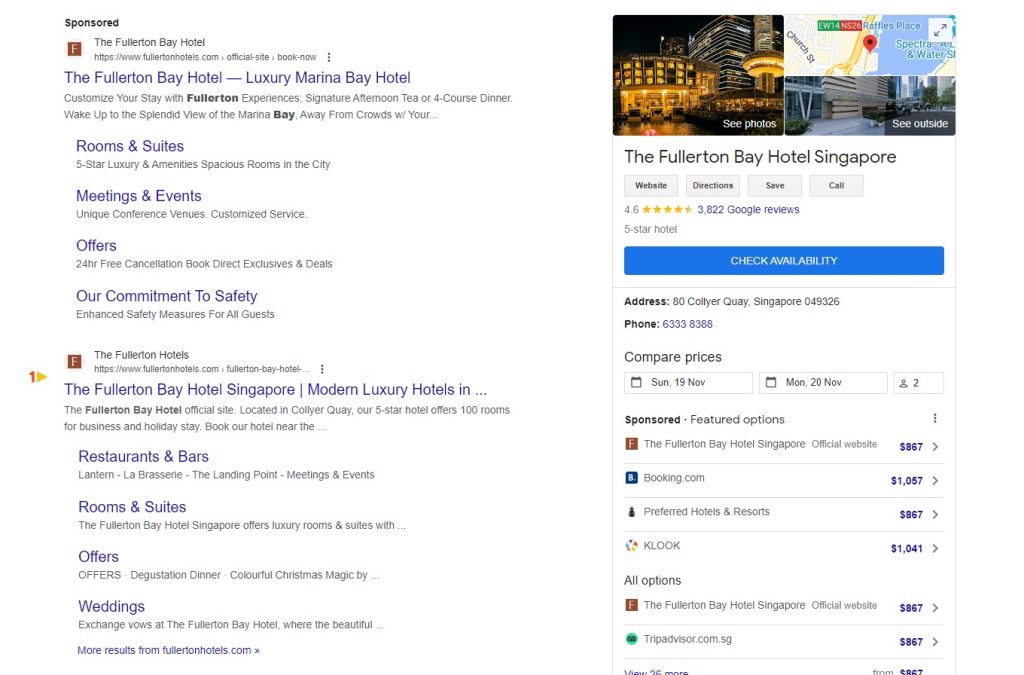
Local SEO for hotels is not only important, but a must. Boost your local search rankings with these steps:
- Optimize Google My Business: Keep it updated with accurate info and images. Encourage reviews and post regularly.
- Maintain Consistent NAP: Ensure your Name, Address, and Phone Number are the same everywhere.
- Use Location-Based Keywords: Include location-specific words in your website content.
By following these local SEO strategies, you can increase your hotel’s online visibility in the competitive hospitality industry.
Chapter 5: Monitoring and Analytics
Continuous monitoring and analysis are essential to evaluate the effectiveness of your SEO efforts and make necessary adjustments.
1. Google Analytics
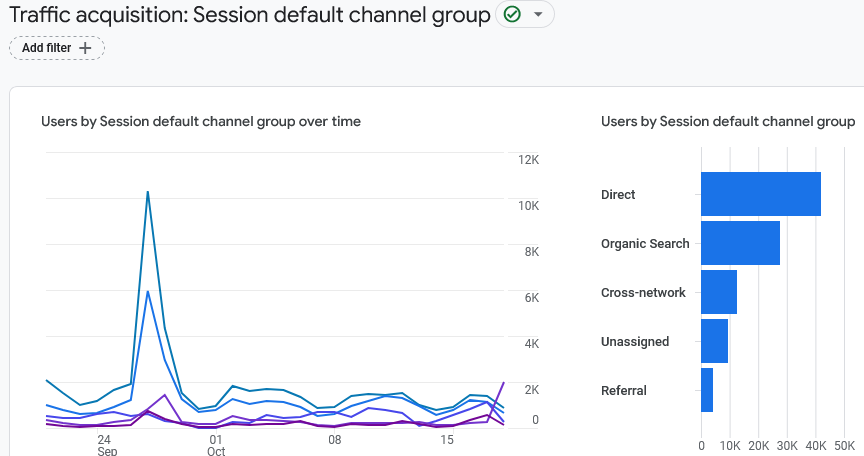
Google Analytics is a valuable tool to watch how well your hotel website is doing. It gives you details about user behavior, traffic, and conversions. Here’s why it helps with SEO:
- Traffic Check: See how many people visit your site, where they come from (like Google search or direct links), and what devices they use. This tells you how people find and use your website.
- User Actions: Find out which pages are popular, how long people stay, and which pages they leave from. This helps you improve the content and user experience.
- Conversion Stats: Track important actions like hotel bookings or newsletter sign-ups. This shows you where people drop off in the process, helping you make the necessary improvements for your website.
With Google Analytics, you can use data to make your website better and boost your SEO.
2. Google Search Console
Google Search Console is a valuable tool from Google to monitor how your website is doing in Google search results. It has many benefits for SEO:
- Indexing Info: You can see which pages Google has included in its search results and fix any problems with pages that aren’t showing up.
- Error Alerts: It tells you about important issues on your site, like server problems or errors in your website’s data. Fixing these issues is crucial for your site’s performance.
- Performance Stats: You can track how often your site appears in Google’s results, how many people click on it, and where it ranks. This helps you understand how well your SEO is working.
Regularly using Google Search Console can help you identify and fix any problems that might hurt your SEO and make your site perform better in search engines.
3. Rank Tracking
Rank tracking is crucial for hotel SEO because it provides valuable insights:
- Keyword Performance: It shows which keywords are driving traffic and which need improvement.
- Competitive Edge: Monitoring rivals’ rankings helps you enhance your strategy.
- Adaptation: It enables you to adjust to SEO trends and search engine changes.
Regular rank tracking with tools like Google Analytics and Google Search Console keeps your hotel SEO competitive and adaptable.
Chapter 6: SEO for Booking Engines
For hotels, the ultimate goal of SEO is to drive bookings. Here are strategies to optimize your booking engine for better conversions.
1. Clear Call-to-Action (CTA)
Boost bookings by making it easy for visitors to start booking on your website. Your “Book Now” button should be clear, easy to find, and require just one click to initiate the booking process. This simple step can significantly improve your hotel’s booking rates.
2. Rate Parity
Keep the same room rates on all booking channels—your website, travel sites, and offline bookings. This helps build trust, ensures guests get the best deal, and avoids confusion. Different rates can push guests away.
3. Mobile Booking Experience
Make sure your hotel’s mobile booking process is user-friendly. Many travelers book on their smartphones, so it’s important to offer a smooth mobile experience. Test and improve the mobile booking system to ensure it’s as easy to use as the desktop version, making it convenient for travelers on the move.
4. Reviews and Testimonials
Displaying genuine reviews and testimonials on your booking pages builds trust. When potential guests see positive feedback from past visitors, they’re more likely to book with confidence. Make sure these reviews are easy to find, as they provide social proof and reassure potential guests that they’re making the right choice.
See the best SEO agencies in Singapore for all your digital marketing needs.
Success Story: A Hotel’s SEO Case Study
A Bed and Breakfast Hotel experienced a remarkable surge in traffic and bookings thanks to their successful implementation of SEO. This cozy and boutique B&B used SEO by revamping its website for user-friendliness and strategically incorporating on-page SEO throughout the site using a carefully curated keyword portfolio. After meticulous keyword mapping, attention was channeled towards two key areas: local maps and organic SEO. By establishing a robust referral network through hotel directories and ensuring consistent directory listings, the B&B managed to secure valuable backlinks and drive traffic, nearly doubling their website visitors and booking inquiries in just a few months!

SEO Agency for Hotel SEO in Singapore
In conclusion, optimizing your hotel’s website and booking process is crucial for SEO. The main goal is to turn website visitors into guests. By applying these strategies that we have discussed as well as following the case study we have shared; having a clear “Book Now” button, maintaining consistent pricing, improving the mobile booking experience, and showcasing reviews, you can increase the likelihood of turning visitors into bookings, ensuring your hotel’s success.
Take your business to the next level with Leading Solution, your go-to digital marketing agency in Singapore. From customized SEO packages and local SEO services to e-commerce SEO solutions, we’re dedicated to helping you dominate search engine rankings. Our comprehensive digital marketing services also include expert website design and optimisation to ensure your online presence is as powerful as your strategy. Discover why we’re the preferred choice for digital marketing SEO in Singapore —reach out today!


